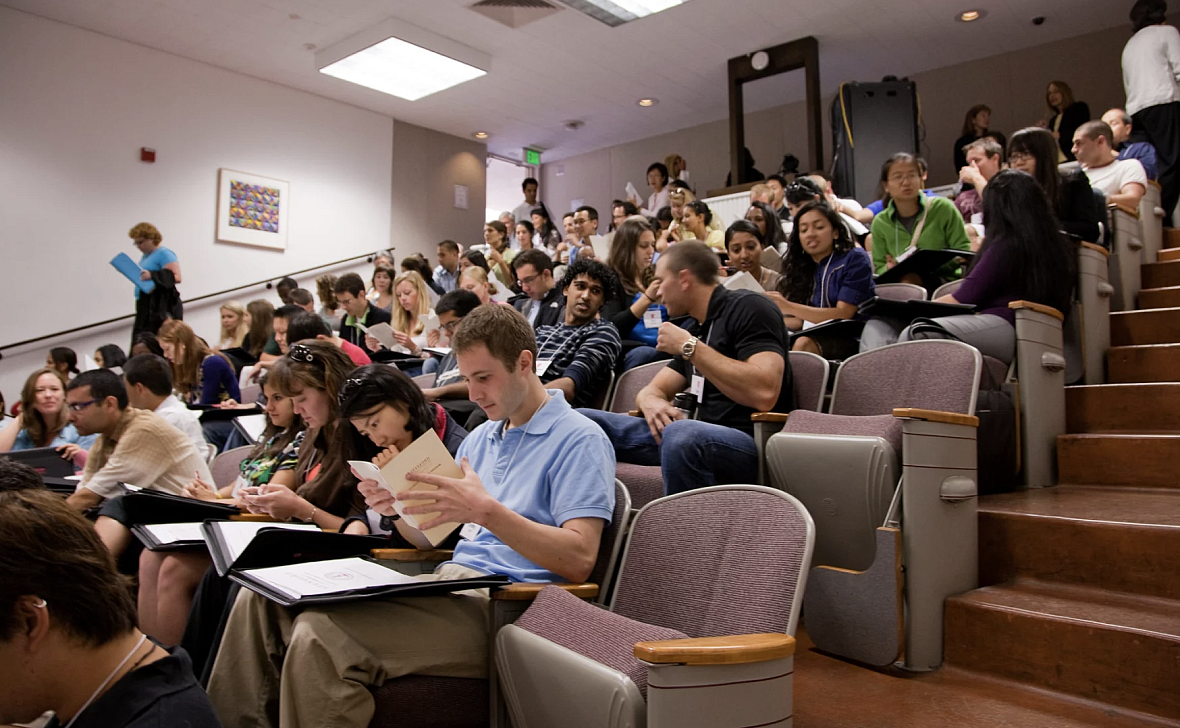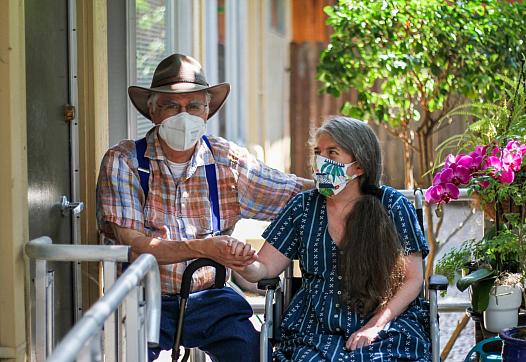A Disabled Physician Works To Minimize The Healthcare Gap For People With Disabilities
Christopher Egusa reported this series while participating in the USC Annenberg Center for Health Journalism's 2021 California Fellowship.

CHJ · A Disabled Physician Works To Minimize The Healthcare Gap For People With Disabilities
EDITOR'S NOTE: An earlier version of this story did not include a transcript. As we work to make KALW news stories and interviews more accessible, we welcome your comments and questions. Email us at news@kalw.org.
People with disabilities often face an uphill battle when it comes to the medical system. It’s been well documented that they’re taken less seriously and experience worse care and health outcomes than people without disabilities.
In medical schools, training on how to work with patients who have disabilities is rare. That’s starting to change for a new generation of medical students.
Stanford's medical school is a hub for disability awareness and education in the field. In part that's thanks to the efforts of Dr. Peter Poullos, a radiologist who leads the Stanford Medical Abilities Coalition. A disabled physician himself, he and his students are working to increase disability awareness in medicine.
Ellen Finn and Christopher Egusa helped produce this interview. It's part of a series that Christopher produced while participating in the USC Annenberg Center for Health Journalism‘s 2021 California Fellowship.
FULL TRANSCRIPT:
Hana Baba: You're listening to crosscurrents from KALW News. I'm Hana Baba.
People with disabilities often face an uphill battle when it comes to the medical system. It's been well-documented that they're taken less seriously and experience worse care and health outcomes than people without disabilities. In medical schools, training on how to work with patients who have disabilities is rare.
That's starting to change for a new generation of medical students. Stanford Medical School is a hub for disability awareness and education in the medical field, thanks in part to the efforts of Dr. Peter Poullos. He's a radiologist who leads the Stanford Medical Abilities Coalition. A disabled physician himself, he and his students are working to increase disability awareness in medicine.
I want to talk a little bit about this issue with medical students and medical school and what you were hearing in terms of what the barriers were.
Peter Poullos: I think that they felt that in their medical education, they weren't given enough access to real people with disabilities so that they could learn how to take care of them.
You know, none of their standardized patients, for example, were of people with disabilities, or if they were, they were often portrayed by actors who actually didn't have those disabilities, and so we're not realistic depictions. But as far as their own issues go... so number one, you know, there's, like, a dearth of information for medical students on where to, and how to, disclose their disability to receive accommodations.
So there's not clear communication for example, in acceptance letters and orientation and materials on websites. Things like that. So, people oftentimes don't know that they can request accommodations. When they do, um, when they are thinking about requesting accommodations, they're often reticent to do so because of the stigma of being labeled as somebody with a disability. They have fear that this will affect their career. That they won't be accepted into the residency programs of their choice or, or will otherwise be discriminated against in the clinical settings.
Hana Baba: There was an article in Health Affairs where they found that many U.S. doctors believe people with a significant disability have a worse quality of life than those who are not disabled. And I wanted to ask you about that.
Peter Poullos: There's a real disconnect between perceived quality of life that physicians perceive of patients with disabilities and how patients with disabilities feel about their own lives. I mean, you know, it was surprising to me when I became disabled in 2003, that... I mean, it was very difficult. There was a huge sense of loss. There still is a huge sense of loss 18 years later, but I'm not unhappy, and I definitely want to be here. And I think that it scares me as a person with a disability that a physician might think that my life is less valuable than somebody else's.
Hana Baba: And this is you, who is a physician, let alone people who are not even in the field and what do they feel, right?
Peter Poullos: Yes. I mean, there's real bias out there towards people with disabilities. Now that bias, there are a lot of people working on combating that bias. There are many physicians who don't have that bias. I've personally in my care, my physicians have—my personal physicians have been very respectful of me and my disability for the most part.
And so like, I don't really feel like I've... I mean, there have definitely been times where I think that my care has been substandard. And I often talk to the medical students here at Stanford about my experiences as a patient and what went well and what didn't go so well. But I feel like a lot of that treatment or poor quality of care that I've witnessed actually had nothing to do with my disability and just problems with the healthcare system in general.
Hana Baba: I've read a lot about diversity and health outcomes, cultural competency in particular. I know how black men, for example, are more likely to get preventative care if it's suggested by a black doctor. Is this a similar case, is, is part of the solution raising that new crop of doctors with disabilities and, and making sure that there are just more of them. And do we know if people with disabilities get better care when it's a doctor with a disability caring for them even anecdotally?
Peter Poullos: Yeah, that's, that's a great question. Right? And we, that is our hypothesis, but it is not proven. So really what we have is I would say now, like anecdotes and like circumstantial evidence that, you know, doctors with disabilities have benefit to the healthcare system and to patients because they understand what it's like to be a patient and also to be a doctor.
I think that their experiences as patients have the effect of making them more emotionally invested in solving problems for people with disabilities. So they're just more aware of the issues and more interested in solving them than people without disabilities. I think that holds true for a lot of racial and ethnic and sexual gender minorities, also that people in those groups tend to be more interested in health equity for those groups. We feel like doctors with disabilities have a unique view of the system as well as a unique approach to, um, patient care.
Hana Baba: Dr. Peter Poullos is a radiologist and he leads the Stanford Medical Abilities Coalition.
[This story was originally published by KALW].


